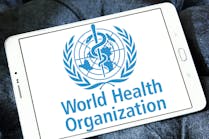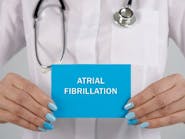Acid reflux affects nearly a third of U.S. adults weekly
Gastroesophageal reflux disease (GERD), a digestive disorder that causes heartburn and other uncomfortable symptoms, may affect nearly a third of U.S. adults each week, and most of those who take certain popular medications for it still have symptoms, according to a new Cedars-Sinai study.
Also known as acid reflux, GERD is caused by gastric acid from the stomach flowing back up into a person's food pipe, or esophagus. This backup can happen when the lower esophageal sphincter, a muscle that briefly opens to let food into the stomach and closes to take food inside, relaxes too often or too long. Besides causing the burning sensation in the throat and chest known as heartburn, GERD can damage tissues and cause food to be regurgitated.
For their research, published in the journal Gastroenterology, investigators conducted an online survey of more than 71,000 people age 18 or over across the U.S., asking them if they experienced specific GERD symptoms and how often, and if they were taking drugs for it.
"Our study is among the largest and most diverse population-based studies on gastrointestinal symptoms ever conducted," said Brennan Spiegel, MD, MSHS, director of Cedars-Sinai's Health Service Research, professor of Medicine and corresponding author of the journal article. Most previous published research on GERD, which found a somewhat lower incidence of the disease than this study did, was conducted within limited geographic areas or with a less representative sampling of U.S. adults, he explained.
An important feature of the new study was its finding that more than half of GERD patients who took popular over-the-counter drugs known as proton pump inhibitors, designed to reduce the amount of acid in the stomach, still reported persistent symptoms. The survey also indicated that certain categories of people, including younger people, women, Latinos, and people with irritable bowel syndrome or Crohn's disease, were less likely to respond to proton pump inhibitors.
"Given the significant effect of GERD on quality of life for millions of Americans, further research and development of new therapies are needed to help patients whose disease does not respond to proton pump inhibitors," said Spiegel, who also directs the Cedars-Sinai Center for Outcomes Research and Education.
The investigators conducted their nationwide survey in October and November 2015 using MyGiHealth, a mobile app that asked respondents to select any symptoms they had experienced in the past week or "ever experienced." Investigators measured the severity of patients' symptoms, using validated questionnaires from the National Institutes of Health. The symptoms included GERD-relevant ones – such as heartburn, acid reflux, or gastroesophageal reflux – plus other general gastrointestinal symptoms such as abdominal pain, constipation and nausea.
Out of 71,812 people who responded to the survey, 44.1% reported experiencing GERD symptoms in the past and 30.9% in the last week. More than a third of the GERD sufferers said they were currently on therapy, mostly involving proton pump inhibitors. Of those taking daily proton pump inhibitors, 54.1% reported persistent GERD symptoms.
"The MyGiHealth digital platform allowed us to efficiently recruit a large, highly diverse, representative population in a very short period of time," said Christopher Almario, MD, MSHPM, assistant professor of Medicine at Cedars-Sinai. Yet it also carried potential limitations because individuals with limited computer skills or poor access to the internet may be underrepresented, he explained. In addition, since the study was described as a "GI Survey" to potential respondents, it may have led to overestimating GERD prevalence since those without gastrointestinal issues may have opted not to complete the survey.




